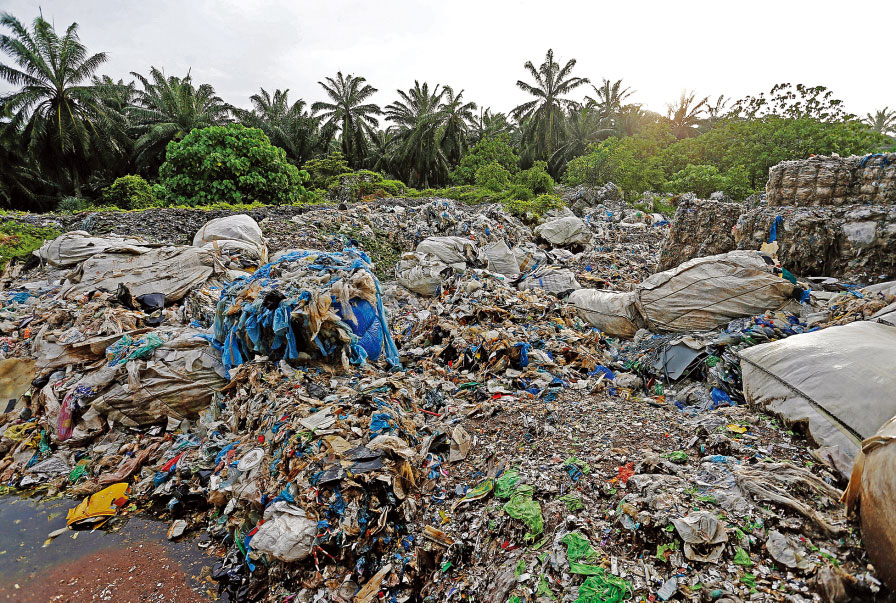Britain to take back illegal waste export
By JULIAN SHEA | China Daily Global | Updated: 2019-11-27 10:22

China's ban on accepting products has impact on surrounding countries
Britain has agreed to take back 42 containers of plastic waste that were shipped to Malaysia illegally because they did not comply with the necessary import documentation.
Since China introduced a ban on scrap imports in January 2018, around 7 million metric tons of rubbish a year have had to find a new destination, often in other Asian countries, and Malaysia has become one of the most frequently visited places.
Currently there are more than 300 containers of plastic waste held back at ports in the Penang region after arriving without the necessary formalities. So far agreements have been reached for 200 of them to return to their country of origin as Malaysia seeks to tighten the rules.
Malaysia's minister for energy, science, technology, environment and climate change, Yeo Bee Yin, said the UK's off er to take back the waste was "highly commendable" and issued a joint statement with the UK high commission.
"We hope the cooperation and understanding between Malaysia and United Kingdom will set an example for other countries with companies exporting contaminated plastic waste to other developing nations," the statement said.
Charles Hay, the British High Commissioner to Malaysia added that "the repatriation of these 42 containers reflects our commitment to fighting the illegal plastic waste trade.
"We look forward to working with Malaysia on the broader agenda of conserving the environment and addressing climate change."
The influx of plastic waste into Malaysia since China introduced its ban has resulted in an increase in unofficial waste processing facilities, leading to many items being buried in landfill or burnt.
According to a report by Greenpeace published in November 2018, in the first seven months of that year exports of plastic waste from the United States to Malaysia had more than doubled, compared to the same period in the previous year.
"The Malaysian plastic recycling industry is overwhelmed by the influx and cannot accommodate the waste in a way that is sustainable and acceptable by the government's own standards," said Heng Kiah Chun, Public Engagement Campaigner at Greenpeace Malaysia.
"We urge the developed countries to review their management of plastic waste and stop shipping garbage to developing countries," said Yeo in response.
It is not just Malaysia that is taking a stand on the issue. Indonesia has already sent back hundreds of containers and the Philippines returned a large shipment to Canada after a diplomatic stand-off that even saw the Filipino ambassador recalled from Ottawa at one point.
In 2018 the governments of 187 countries, including Malaysia, added plastic to the Basel Convention, the international agreement dealing with the movement of hazardous materials between nations, in an effort to reduce the global problem of plastic pollution.
























